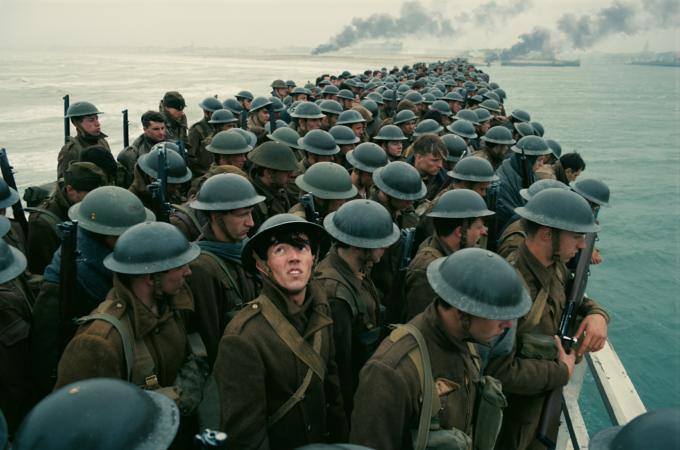Dunkirk
The movie "Dunkirk" is drawing large crowds as it tells the amazing story of the World War II sea rescue of 338,000 British soldiers trapped on the beaches of northern France. Eight hundred privately owned yachts and boats crossed the English Channel under constant enemy fire to save their fellow countrymen.
What the movie did not portray was the plight of the civilian refugees, in the town of Dunkirk itself. The German Army's advance created a refugee crisis of major proportions. Over a thousand civilians died from the merciless bombing of civilians at Dunkirk.
A first-hand account of those tragic days was written by my friend Catherine deVinck. Here is an excerpt:
"On May 10, 1940, the German Army invaded Belgium, my native country. I was eighteen years old, living in Brussels with my grandfather, mother, and my sixteen-year old brother. My father, a major in the Belgium Army, was away with his troops.
I was awakened that fateful morning by the sound of German bombers flying over the city, and by the explosions of bombs thundering in the distance. Filled with fear, my mother decided we had to flee the city to get as far away from Hitler's Army as possible.
Many thousands flooded the roads making the evacuation a night-mare. When we finally got to the train station, it was mobbed, but we managed to squeeze on board. At the next stop we found another bus, and finally arrived at Dunkirk. We thought we'd be among the first, but the streets were already filled with refugees. There was no lodging to be found anywhere. Entire families were bedded down in the streets, and we followed suit.
We knew we had to leave Dunkirk as soon as possible to find lodging. The next morning, my mother learned there was a bus leaving from the main square, where hundreds were waiting to get on board.
The crowd parted when the bus arrived, and by chance it stopped right next to us. However, when the crowd surged forward, I was thrown under the bus before it came to a complete stop.
My mother screamed as the huge rear wheel came to rest against my left thigh. I fainted. I wasn't hurt, but part of my skirt was still under the wheel. In a state of shock, I felt the people pulling me, and my skirt, free. As a result, the bus driver let us get on the bus first.
The near fatal accident turned out to be a blessing in disguise. Eventually, we made our way to the southwest coast of France, near Spain. We found lodging, and thanks be to God, managed to survive.
When the war ended, we were all reunited in Brussels. I met my husband Jose, and we had many children, grandchildren, and great-grandchildren. I can still see the despair and fear on the faces of the families that flooded Dunkirk with us.
I am 95 now, and I pray often for the victims of war. I often wonder what became of the Dunkirk survivors."
It has been my pleasure to know the deVinck family for fifty years. Catherine's husband Jose, a Belgian baron, died last year at age 100. He and I coauthored a book entitled, "The Challenge of Love." Jose served in the Belgium Army under Catherine's father, who was promoted to the rank of general toward the end of the war. It was he who introduced his daughter Catherine to Jose.
- FATHER CATOIR IS AN AUTHOR, FORMER HOST OF “THE CHRISTOPHERS” TV PROGRAM, AND A CATHOLIC PRIEST FOR OVER 55 YEARS.



















